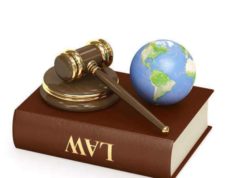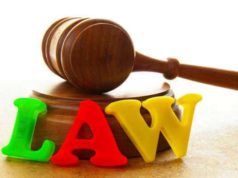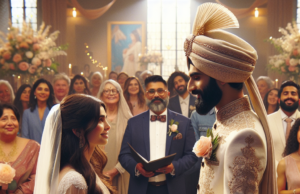
Introduction
Gay marriage has become one of the most controversial issues in modern society. Different states all over the world have their laws that govern same-sex marriages. Kansas, like other states, was not left behind in enacting new laws governing the legalization of gay marriage. This article will focus on gay marriage laws in Kansas and why they have become such a contentious issue.
A Brief History of Gay Marriage in the United States
Before taking a look at gay marriage laws in Kansas, it is essential to understand the history of gay marriage in the United States. The struggle for legalizing gay marriage began in Hawaii when the court ruled in 1993 that denying same-sex couples the right to marry was a violation of their constitutional rights. Nevertheless, the Hawaii court ruling did not result in the immediate legalization of same-sex marriages.
In 2003, the Supreme Court of the United States ruled that states have the right to criminalize homosexual relations. However, in the 2013 landmark case of United States v. Windsor, the Supreme Court of the United States invalidated the parts of the Defense of Marriage Act (DOMA) that restricted the definition of marriage to opposite-sex couples only. In effect, gay couples could access the same benefits as opposite-sex couples. In 2015, the Supreme Court of the United States ruled in the case of Obergefell v. Hodges that same-sex couples have the right to marry in the United States.
Gay Marriage in Kansas
In Kansas, the legal history of gay marriages has been full of twists and turns. The struggle to legalize same-sex marriage in Kansas started in 2004, when then-Governor Kathleen Sebelius signed a law that defined marriage as a union between only a man and a woman. Since then, the topic of legalizing same-sex marriage has been a divisive issue.
In 2013, Kansas Governor Sam Brownback signed a bill into law that aimed to protect traditional marriage. The law established that marriage is only between one man and one woman. However, a year later, the 10th circuit court of appeals held in the case of Bishop v. Smith that a Kansas law that prohibited same-sex marriages was unconstitutional.
On November 12th, 2014, an American district court judge ruled that the state of Kansas had to recognize the marriages of same-sex couples performed in other states. The federal ruling paved the way for gay marriages to take place in Kansas. Despite this decision, the state continued to fight the ruling. In October 2014, the Kansas attorney general filed a motion with the Supreme Court asking for an emergency stay. Even though the Supreme Court did not issue an emergency stay, Kansas refused to issue marriage licenses to gay and lesbian couples until after the Supreme Court’s decision in 2015.
On June 26, 2015, the United States Supreme Court in the Obergefell v. Hodges case ruled that same-sex couples have a constitutional right to marriage under the Fourteenth Amendment to the United States Constitution. The ruling made gay and lesbian marriage legal throughout the United States, including Kansas.
Current Gay Marriage Laws in Kansas
Currently, gay marriage is legal in Kansas, and same-sex couples have the same legal rights as heterosexual couples. Same-sex couples can now get married, joint filing of taxes, owning property together, adoption, and other legal matters like wills, trusts, and beneficiary designations.
In December 2018, a same-sex couple filed a lawsuit challenging Kansas adoption laws, arguing that the law grants more rights to heterosexual couples than to same-sex couples. The couple claimed that the discriminatory law deprived children the chance to be raised in families that “position them” for the best possible outcomes.
However, in March 2020, the state of Kansas, through the Kansas Supreme Court, upheld the state’s adoption law, stating that there was no significant difference between spouses and partners when it comes to adoption. The lawsuit may have a significant impact on adoption laws governing same-sex couples.
Conclusion
In conclusion, gay marriage laws in Kansas have had a complex and turbulent history. It is only recently that same-sex couples have received the same legal rights as heterosexual couples. However, the road to achieving equality has been long and challenging, and more fights may be on the horizon. Nevertheless, the future is optimistic, and as people become more accepting of the LGBTQ community, so too will allow for their inclusion in all aspects of society.
Overall, Kansas has come a long way in protecting the legal rights of same-sex couples. However, unless further reform occurs, it seems unlikely that it will happen soon. Nevertheless, as shown, time and time again in history, no matter how long it takes to achieve equality, the struggle and fight are well worth it.
In Kansas, gay marriage is explicitly banned by state laws and no same sex relationship is allowed to be legally recognized. Although Kansas currently has the Defense of Marriage Act as state law, the state also has constitutional amendments banning gay marriage and other same sex relationships in Kansas. Marriage is defined by DOMA as a union between an opposite sex couple. In Kansas, gay marriage is explicitly forbidden by the state’s constitution and by statutes. In fact, the state will not recognize same sex relationships in any way.
The Kansas Constitution clearly states that no same sex relationship is to be legally recognized in Kansas. Marriages shall only be recognized if they conform to state laws, which indicate that the union must be between opposite sex individuals. In fact, no same sex relationship is entitled to any legal rights or benefits that are afforded to marriage. In essence, couples in a same sex relationship, are not entitled to any legal rights regarding their relationship. For instance, couples cannot seek to share health insurance or purchase property jointly.
In fact, same sex couples may find that encounter many difficulties simply because they are not legally related to one another. For instance, a partner would be unable to visit their partner in the ICU because they are not related. In addition, they would be unable to make any health care decisions effecting their partner. This can be one of those most difficult situations. Usually, partners are the ones that are most aware of how their partner feels regarding certain medical situations. I can be heartbreaking when they are unable to make those wishes clear to medical professionals.
Statutes in Kansas dictate that same sex relationships are contrary to public policy. In Kansas, marriages performed in other states, will only be recognized if they conform to Kansas marriage laws. In essence, gay marriages performed legally in other states, will not be recognized in the state of Kansas. Marriages performed in other states will not be entitled to any of the rights and responsibilities associated with marriage, unless that marriage was performed according to the Kansas law. Gay marriage does not appear to be a legally recognized option in Kansas in the immediate future.
In Kansas, gay rights do not appear to be a priority for the state. While many supporters of gay marriage and gay rights, try to enact change, the general population has remained unsupportive. In fact, the laws are clear in opposing gay marriage in Kansas. Gay marriage is not likely to be an option in Kansas any time soon. It takes a long time to have amendment’s overturned by the courts.

























